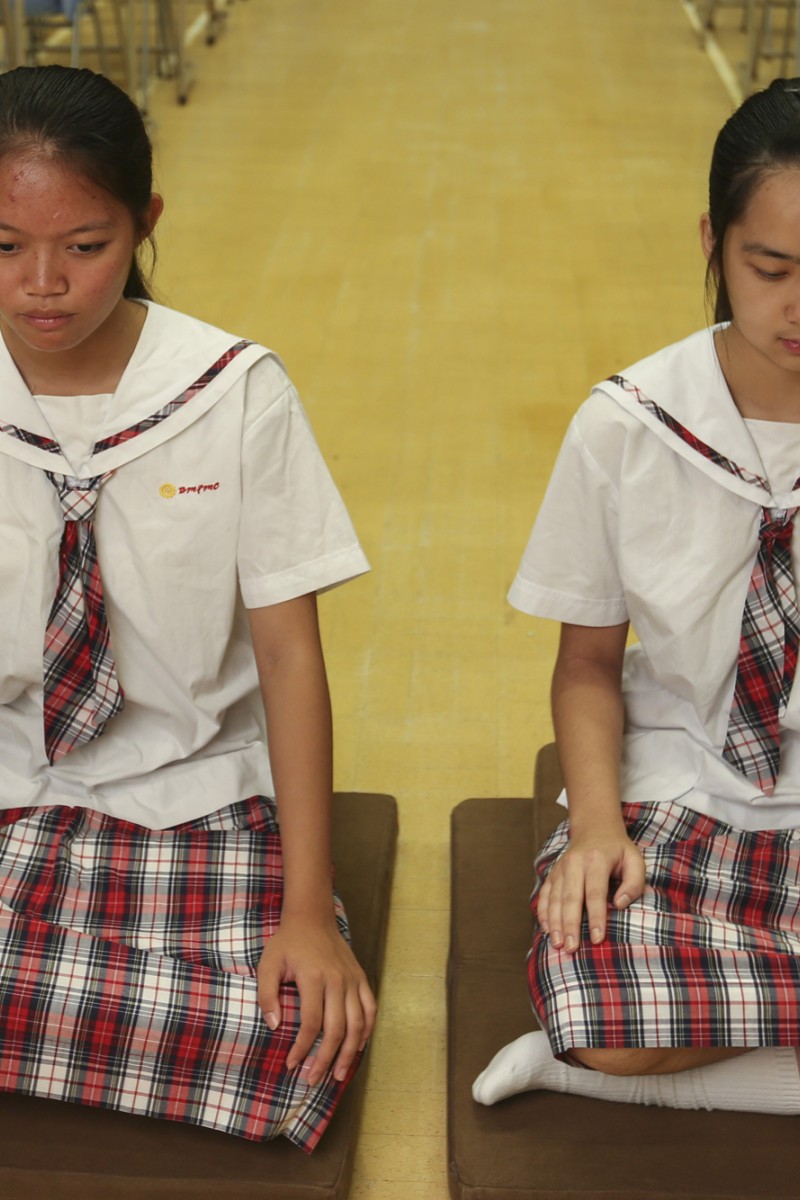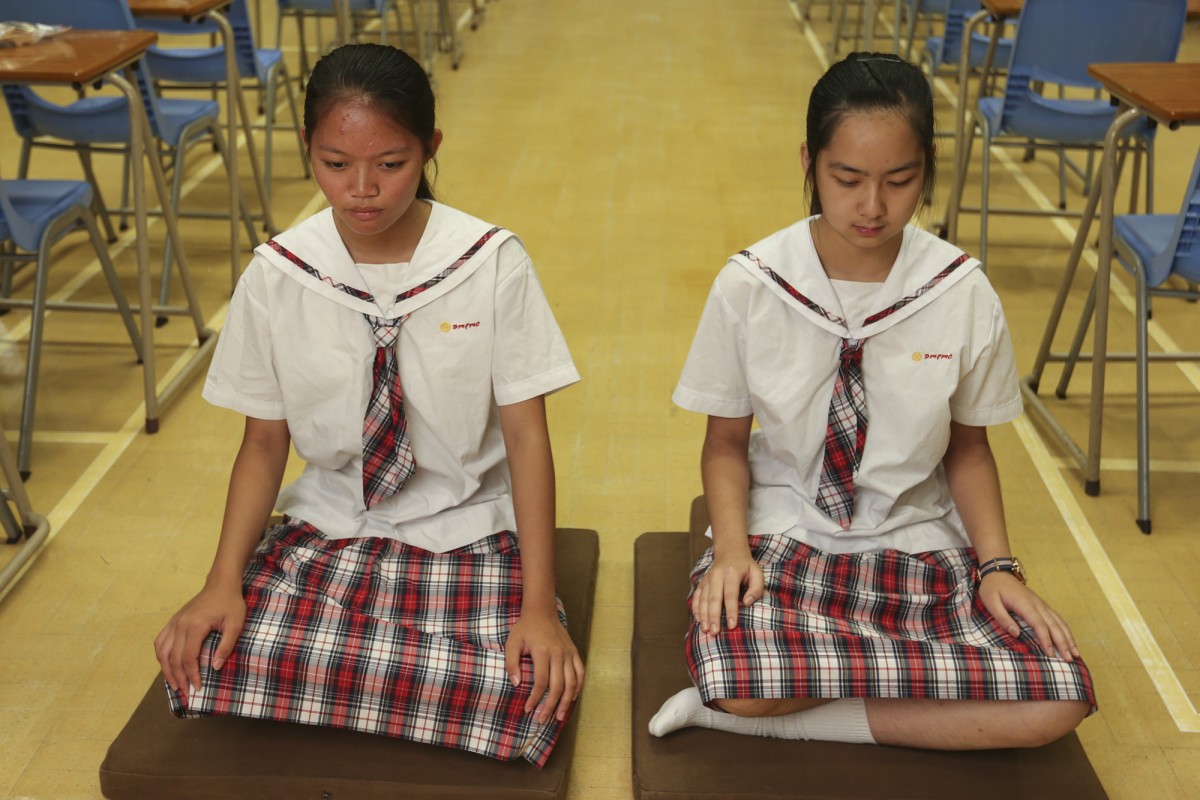
Meditation at school helps students to stay calm and carry ohm
 Buddhist Mau Fung Memorial College students Luo Xian-yan (left) and Tso Po-yi find meditation helps them become more relaxed and focused.
Buddhist Mau Fung Memorial College students Luo Xian-yan (left) and Tso Po-yi find meditation helps them become more relaxed and focused. Meditation may be a centuries-old practice, but its benefits haven’t been lost on today’s younger generations.
This year, the Buddhist Mau Fung Memorial College in Tin Shui Wai teamed up with the Tergar meditation centre in North Point to become the first school in Hong Kong to offer Joy of Living meditation lessons to students. So far, the results have been excellent.
“Meditation has helped me learn to relax in stressful situations, like when my parents are fighting or when I’m under pressure at school,” 15-year-old Form One student Luo Xian-yan told Young Post. “When you are calm, you learn more quickly and easily”.
School principal Ringo Chan had a good reason for introducing the programme.
“I noticed that many students today have short attention spans and are easily distracted by their phones,” he said. “Meditation teaches them to stay focused, which I believe is the most important skill for their studies, and for their future careers”.
It can be difficult for young people to focus when they are worrying about future exams or past grades, especially in a competitive and stressful city like Hong Kong. However, meditation teaches mindfulness, which means paying attention to and appreciating the present moment.
Principal Chan, who has tried Joy of Living meditation himself, added: “It is sometimes difficult for young students to control their emotions because they don’t always know what it is they are feeling and why they feel that way. Meditation helps them understand and, therefore, control powerful emotions like sadness, anger, and stress.”
Luo agrees with her headmaster. “Meditation has helped me understand how my emotions work,” she said. “Just because I feel anger doesn’t mean I have act on it. There’s no need to let my emotions control my behaviour”.
The Joy of Living meditation programme was designed by “the happiest man in the world,” a Tibetan monk and best-selling author named Yongey Mingyur Rinpoche.
American scientist Richard Davidson once ran tests on Ripoche and found that his brain had so much activity in areas that make people feel “positively engaged, goal-directed, enthusiastic and energetic,” that he thought his machine was broken. In other words, there is strong scientific evidence that meditation improves happiness.
“I know that Hong Kong can be a very stressful place,” Rinpoche said when he visited the city last September. “My main message is, when I was young, I had panic attacks, so it was really difficult. I made friends with my panic through meditation”.
Eliza Lau Man-yee, a volunteer for Tergar, said it was the centre’s first time introducing meditation to young students.
“We made the programme more fun for young people by adding more activities and games instead of just talking to them about meditation,” said Lau. “We believe it is better for them to experience mindfulness for themselves, rather than just learn about it”.
In one activity, students pretend to be aliens who have been given human bodies and must learn how to use them for the first time. Lau said this helps the teenagers appreciate how their bodies can move, feel, see, hear and touch.
Another volunteer, Connie Koo Wai-sze, compares young people’s minds to monkeys.
“You can’t control the monkey,” she said. “The more you try to control, the crazier it gets. We teach students to just watch the monkey, to be friendly to it and know it’s there and, eventually, it will calm down”.
Koo said that Joy of Living encourages meditating based on the principle, “short times, many times”. In other words, students do not have to meditate for hours in order for it to be effective. It is most important to remember to meditate and to do it often in order to make it a habit.
Another key principle is “any time, anywhere”.
“You can meditate when you are walking, eating, or doing anything; having mindfulness literally improves every aspect of life” explained Koo.
Fourteen-year-old student Tso Po-yi, who plans to continue meditating for the rest of her life, agrees.
“I don’t see why meditation and doing other things need to be separate,” she said. “You can practise mindfulness while playing computer games, while studying, or doing anything”.
Lau said she will be travelling to Nepal to visit Ripoche this summer, and agreed to help make a meditation video designed specifically for young people. Anyone interested in learning more about Joy of Living can visit the Tergar meditation centre in North Point.
